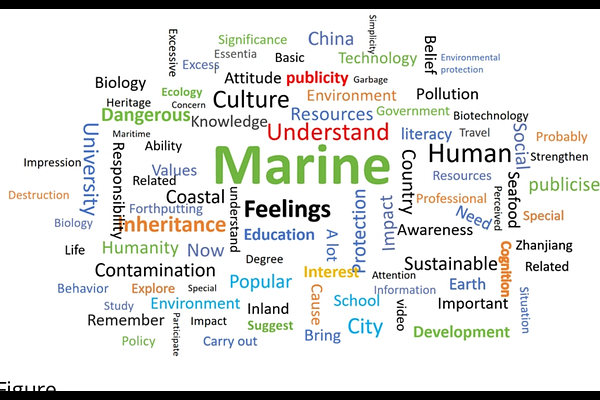The Promotive Effect of Ocean Literacy on Marine Conservation Behavior: A Qualitative Study Based on Chinese University Students

The Promotive Effect of Ocean Literacy on Marine Conservation Behavior: A Qualitative Study Based on Chinese University Students
wang, l.; Gao, B.; Chang, X.; Zhang, L.
AbstractIntroduction Ocean literacy is crucial in shaping marine conservation behaviors among Chinese university students. This study explores the intricate relationship between ocean literacy and pro-environmental behaviors, emphasizing the roles of emotional connections, cultural significance, and educational experiences. By examining the multidimensional aspects of ocean literacy, the research seeks to identify key factors that influence conservation actions and the practical application of marine knowledge. Methods Utilizing qualitative methodologies, this study conducted semi-structured interviews with 16 Chinese university students to delve into their perceptions and interactions with the marine environment. The interviews explored various dimensions such as oceanic knowledge, environmental beliefs, value orientations, and actions related to marine conservation. NVivo software was used for data analysis, allowing for the identification of key themes through a rigorous coding process. The study's analysis also included a moderated mediation model to examine how educational experiences influence the relationship between ocean literacy and conservation behaviors. Results The findings reveal that ocean literacy among university students comprises key components such as scientific knowledge, environmental ethics, conservation action, policy understanding, and critical thinking. Significant gaps in marine knowledge were observed, alongside strong emotional and cultural connections to the ocean, which significantly mediate the relationship between ocean literacy and conservation behaviors. Educational experiences further moderated these effects, highlighting the need for enhanced marine education. Conclusion This study underscores the necessity of integrating comprehensive educational strategies with emotional and cultural engagement to effectively promote marine conservation behaviors. The results advocate for educational reforms that incorporate practical and interactive learning approaches, aimed at deepening students' understanding and involvement in marine conservation. Strengthening these educational frameworks can significantly enhance ocean literacy and foster proactive environmental stewardship among university students.